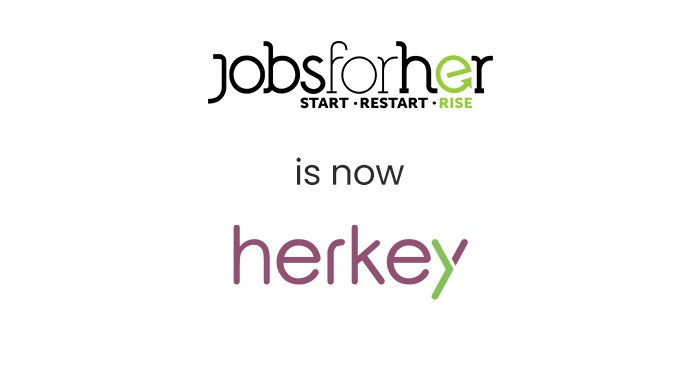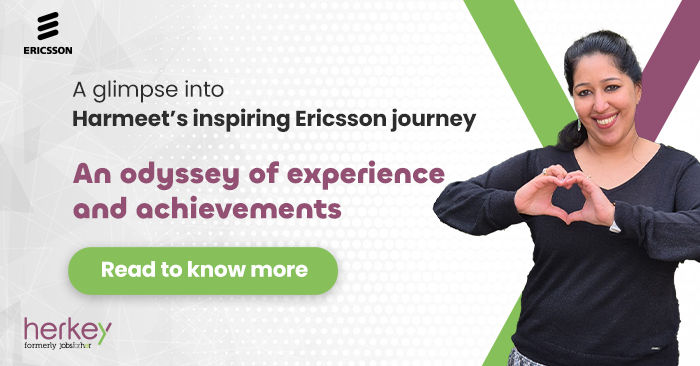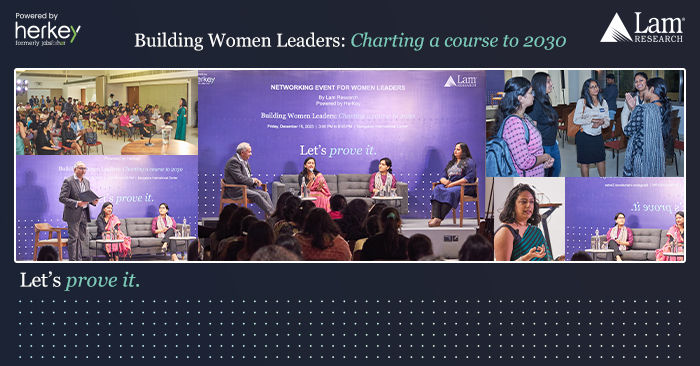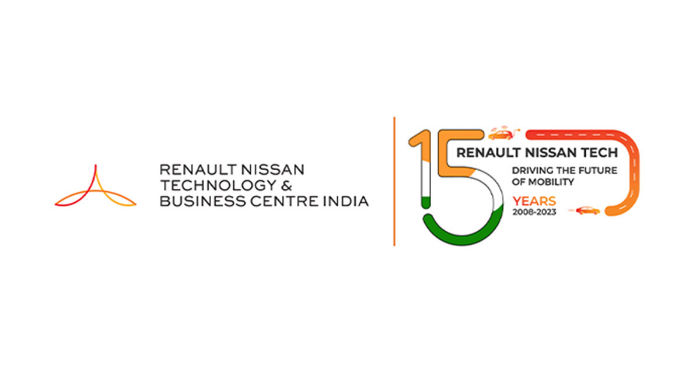How Powerful is EQ in Determining your Career Growth?
- Ujwala Thirumurthy
- in
- Back to Work, Career Development, Expert Advice
- |
- 14 May 2019

You found the perfect job! Great. But your work doesn’t end there. It’s now time to reskill, upskill and be equipped to handle the pressures that come with a job. Whether it is a work-from-home role, a part-time role or a full-time one, IQ and EQ have a major role to play in your decision making.
Stay updated with CherrySkillz Learning
Dr Arpita Dutta, Founder of CherrySkillz Learning Private Limited, tells you how to use technology for your own professional and personal development. She also emphasizes on the importance of a high EQ in addition to your IQ — both of which are important for a smooth way forward in your career.
Using Technology to Our Advantage
Technology is either a boon or bane. If we use technology cautiously and consciously with good intent, it can do wonders.
The discovery of Artificial Intelligence (AI), Robotics, Machine Learning (ML), Augmented Reality, Virtual Reality and Mixed Reality has brought value-additions to healthcare, manufacturing and other sectors. Robots allow for increased production and profit margin because they complete tasks faster. They are used to perform accurate surgery and transport dangerous substances. With AI and automation-powered technologies, manufacturers can improve efficiency and optimize complex operations.
Here's something interesting that I read:
“Technology will create its own class system. The poorest will have robots and impersonal technology to deal with. The middle-class will have personalized technology. The rich will have human company.”
The rise in automation and increase in the use of digital platforms prove that we depend heavily on technology. Globalization and new technologies demand new modes of working, and talent with new and diverse skills. To flourish in this environment, reskilling is imperative to keep up with the trends.
Jack Ma, Founder and Executive Chairman of Alibaba Group, says, “To be a successful leader you need EQ, IQ and LQ…The quotient of love, which machines never have....A machine does not have a heart, does not have (a) soul, does not have a belief. Human being(s) have the soul, have the belief... we are creative.”
Rather than encouraging human beings to become more like machines, we should be building machines that support or assist humans.

Why is Emotional Intelligence vital?
Much like how we can see our reflection only in tranquil water, we can only make the right decisions when the mind is calm; because when we are calm, we are able to think well and differentiate right from wrong.
Human beings around the world have similar brain structures and use similar facial muscles to express basic emotions, such as anger, happiness, sadness, fear, surprise and disgust.
A person can have different thoughts about the same situation. Different thoughts can then lead to different kinds of changes in (1) what your body is doing, (2) what you pay attention to and think about, and (3) how you want to act. When you notice these changes, you can use them to figure out what emotion you are feeling.
Situation 1: Feeling sad because you did not get invited to a party. You don’t feel like doing anything.
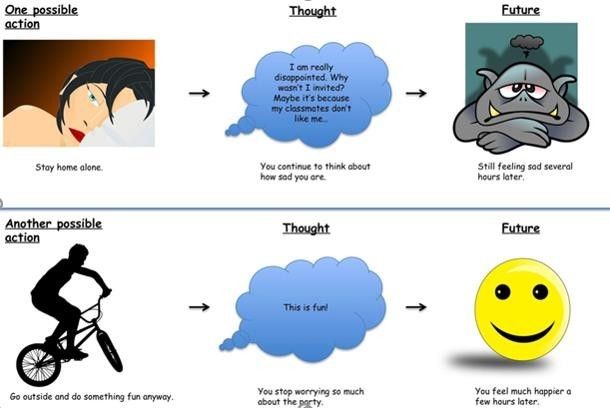
Another example:
Situation 2: Feeling scared about giving a presentation
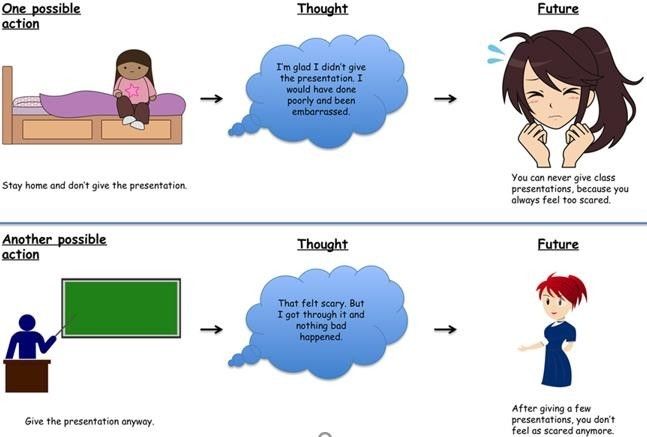
Daniel Goleman’s model (1998) focuses on Emotional Intelligence (EI) as a wide array of competencies and skills that drive leadership performance, and consists of five areas:
- Self-Awareness
- Self-Regulation
- Social Skill
- Empathy
- Motivation
1) Self-Awareness: Tracking (a) how often you get angry, sad, unhappy, fearful, frustrated, disgusted, depressed, anxious, rude; (b) the duration an emotion stays; (c) the causes of emotions captured in an excel sheet; and (d) understanding the pattern will help us understand our current state.
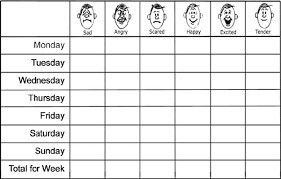
2) Self-Regulation: Another good reason to understand emotions is because it can help you understand healthier ways to respond to them.This helps with managing ourselves better, while improving interpersonal and social skills.
“There is always an inner game being played in your mind, no matter what outer game you are playing. How aware you are of this game can make the difference between success and failure in the outer game.” — Tim Gallwey, creator of The Inner Game.
The inner game or the ‘performance equation’ is: PERFORMANCE = POTENTIAL – INTERFERENCE
We have two areas that we can develop to increase our performance:
- We can choose to grow potential by expanding our comfort zone.
- We can choose to reduce or overcome internal obstacles, such as fear, self-doubt, lapses in focus, anxiety and limiting concepts or distortions.
The image below shows the impact of ‘good’ stress and ‘bad’ stress on performance.
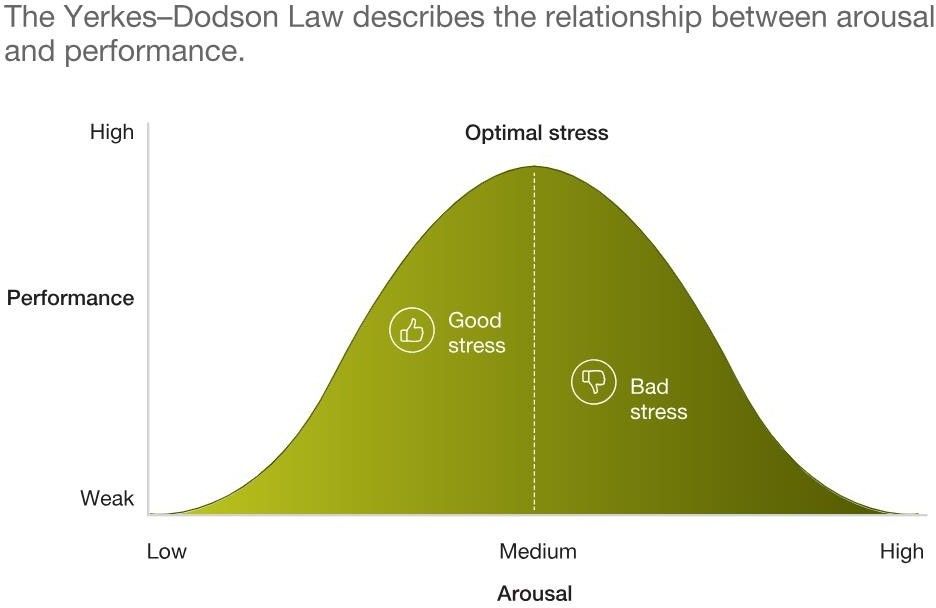
The World Needs Emotional Anchors
Smart machines, through advanced software or technologies, will be able to detect problems, prevent failures and offer solutions, but it takes an emotionally intelligent person to encourage a team of people, manage tensions, boost morale, listen, influence, relate to others, celebrate with the team and more.
In this high-tech world and our fast-paced lives, we will still need emotional anchors to help sail through tough times.
About the Author:
Dr. Arpita Dutta is a seasoned Human Resources and Learning & Development professional, with over 17 years experience in HR & Learning Consulting, Leadership Development, Organisation Capability, Culture Transformation, Employee Engagement, Performance Management and Talent Management practices.
Her passion for skill development projects has brought transformational changes across multiple organizations. She has created web-based content for a premier university that benefitted over two lakh students across the country and has started a successful line of business contributing to business growth. She is the case-study champion for a premier university, contributing to top 15 real-life HR business cases.
She is the Talent Engagement Champion facilitating people-centric programmes with cross-cultural interactions, and has received several recognitions. She has worked for brands like ATOS (previously SchlumbergerSema), InvensysSkelta (now Schneider Electric Software), Manpower Global and start-ups.
Currently, Dr Arpita Dutta is the Founder Director of CherrySkills Learning Private Limited, a boutique training and coaching company that offers training solutions through award-winning business simulation products and services by expert facilitators/coaches. She is a facilitator, having trained more than 8,000 working professionals and students. She is the HR Consultant-Retainer for a start-up.
She holds an MBA from IISWBM (Kolkata) and EPHRM from IIM (Lucknow). She is a certified Dale Carnegie Trainer and NLP Practitioner. She is a recipient of the Asia Pacific HRM Congress Award for Leader of Tomorrow, ISBR Best Woman Employee of the Year Award and ISTD Exemplary Learning Professional Award.

